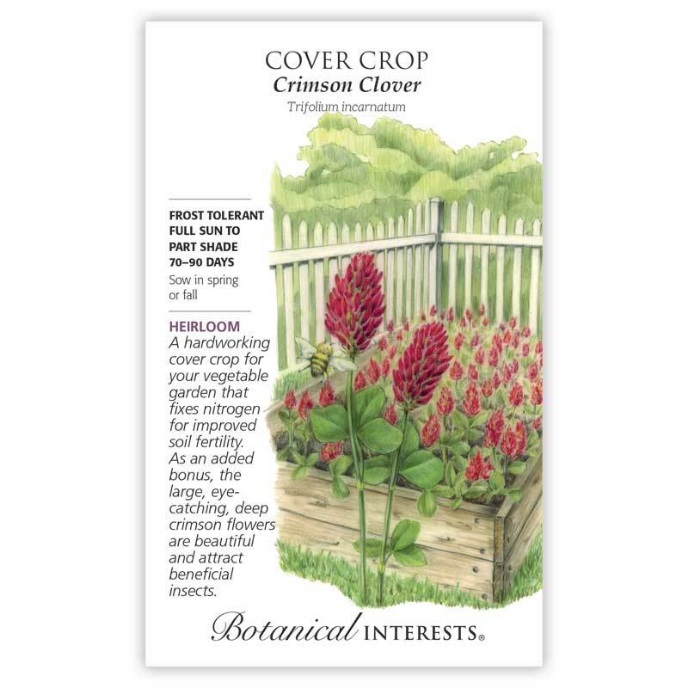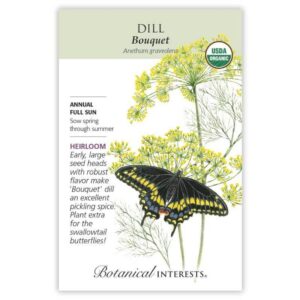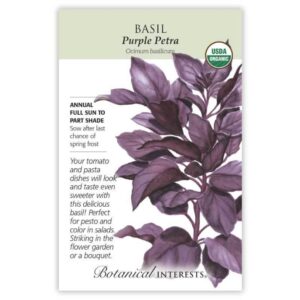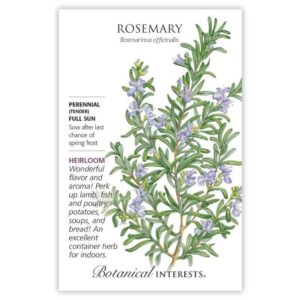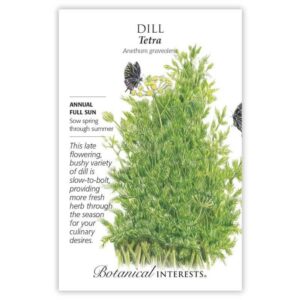Description
Crimson Clover Seeds are a fast-growing, nitrogen-fixing cover crop that brings multiple benefits to your garden. Known for its deep red, elongated flower heads, this annual clover attracts beneficial insects such as ladybugs and bees while improving soil health. Crimson clover is perfect for planting in the spring or fall, as it thrives in cool weather and works well in various soil types, particularly well-drained soil. It can even tolerate some shade, making it ideal for planting between rows or under tall plants, such as corn or fruit trees. For maximum nitrogen benefits, mow or cut the plants back just before seeds form. Additionally, the stunning crimson flowers can be harvested and dried for a refreshing tea.
This packet sows approximately 178 square feet. 180 sq ft.
Variety Info:
Botanical Name: Trifolium incarnatum
Days to Maturity: 70–90 days
Family: Fabaceae
Native: Europe, Turkey, Madeira Islands
Hardiness: Frost-tolerant annual. Hardy to -10°F.
Plant Dimensions: 12″–36″ tall, 8″–12″ wide
Variety Information: Upright plant with a taproot, typical 3-leaflet clover leaf and elongated, 1″-long flower heads with crimson flowers that open in succession from bottom to top. Crimson clover grows best in cool weather. In USDA zones 6 and warmer, it is grown as a winter annual for flowering the following spring. Flowers are produced only under long-day conditions (more than 12 hours of daylight).
Exposure: Full sun to part shade
Sowing Info:
When to Sow Outside: 6 to 8 weeks before your average first fall frost date. Can overwinter in USDA zones 6 and warmer.
When to Start Inside: Not applicable.
Days to Emerge: 7–21 days
Seed Depth: ¼”
Seed Spacing: Scatter seed about 2″ apart
Thinning: Not applicable
